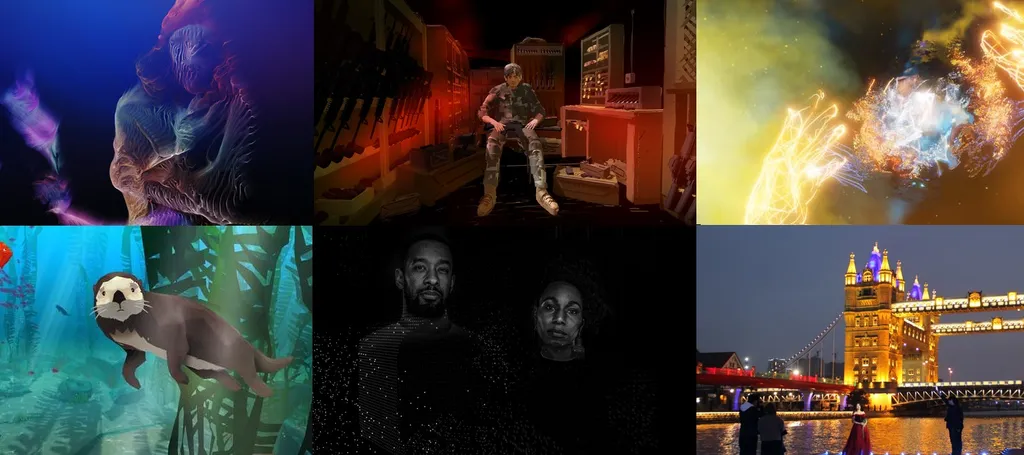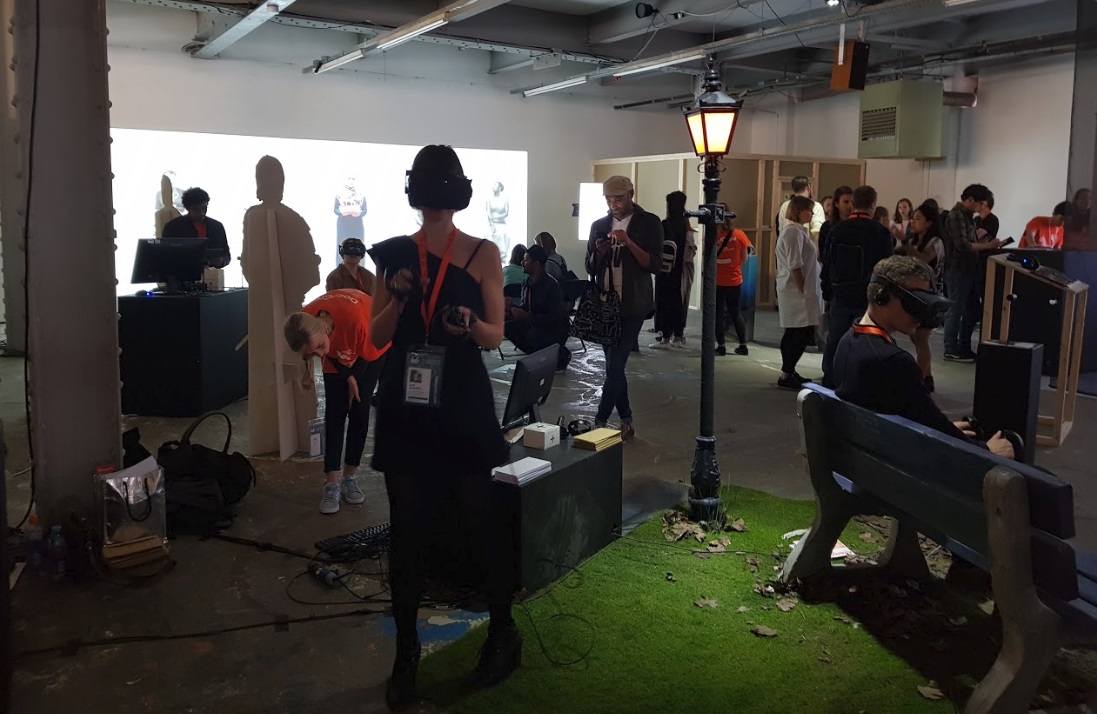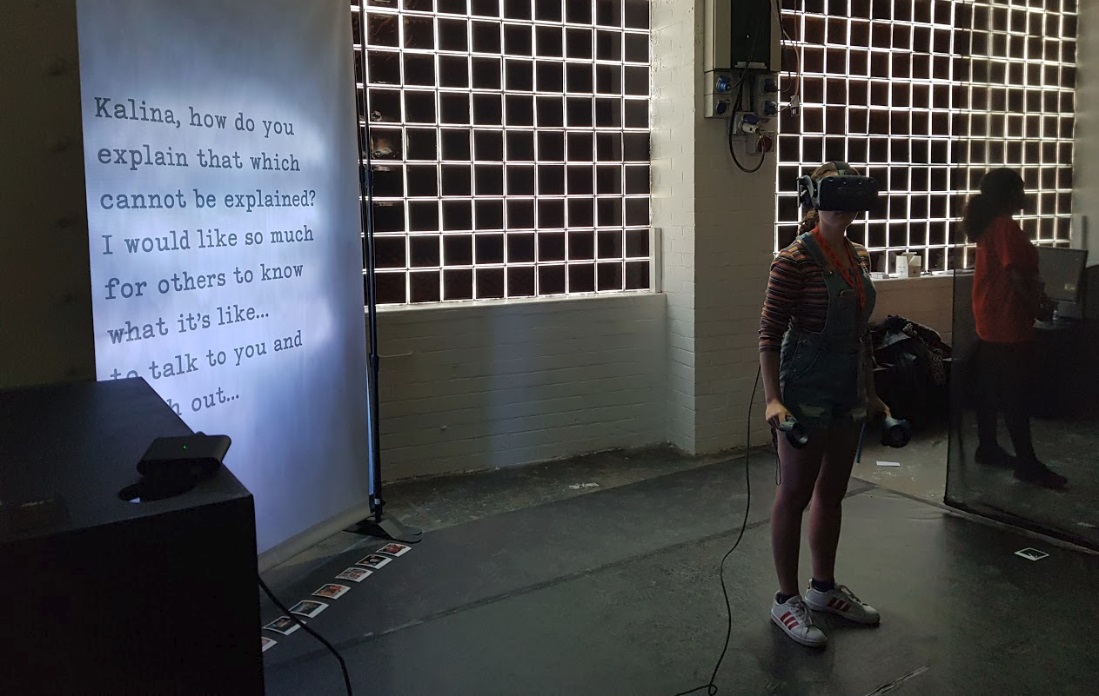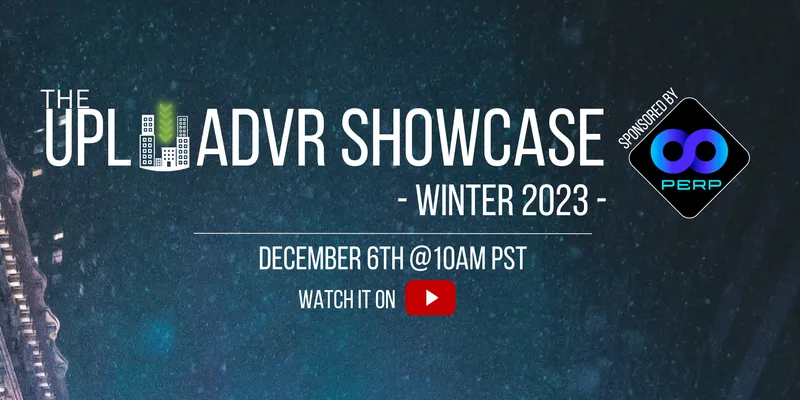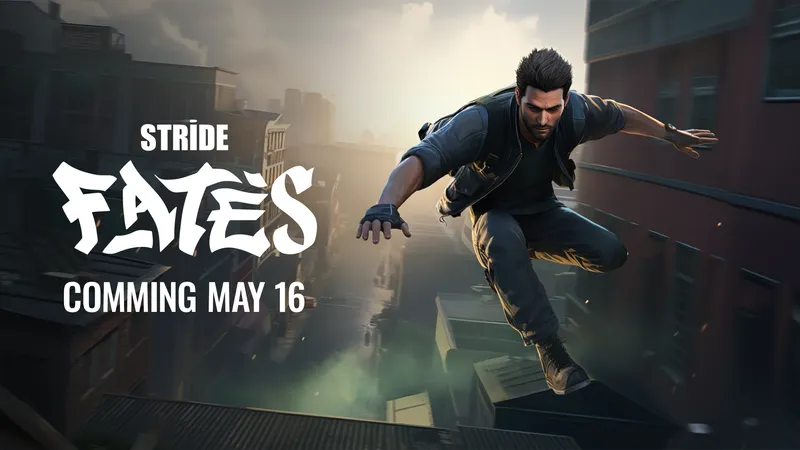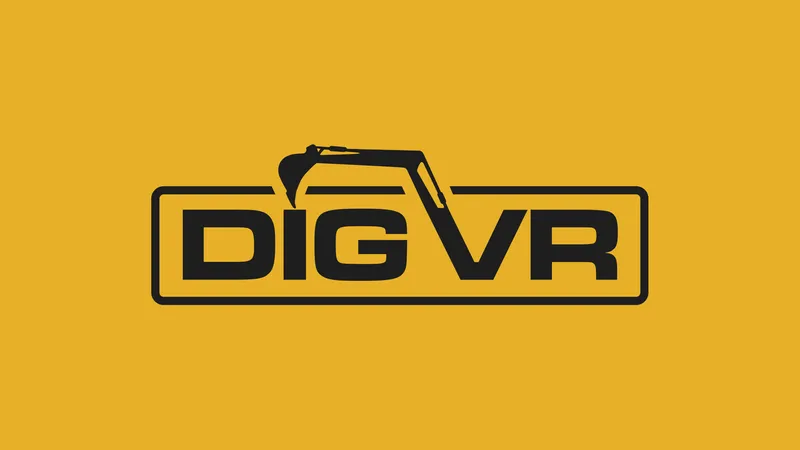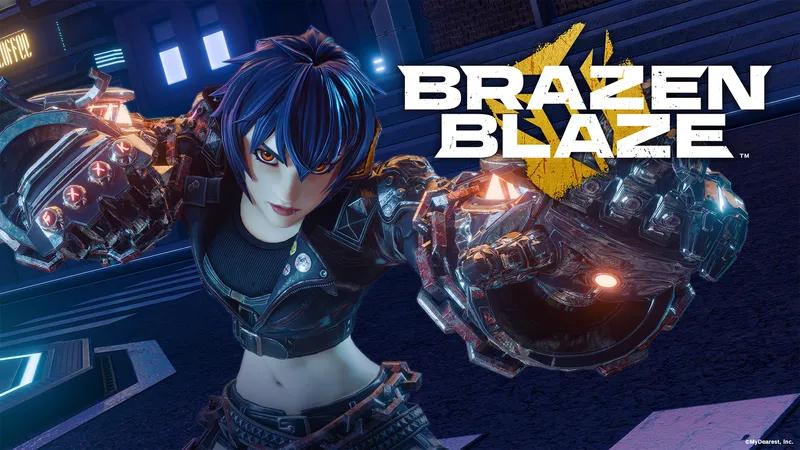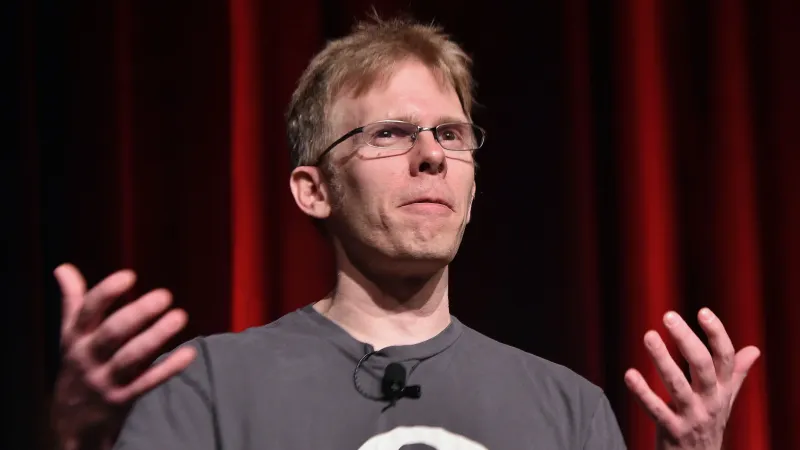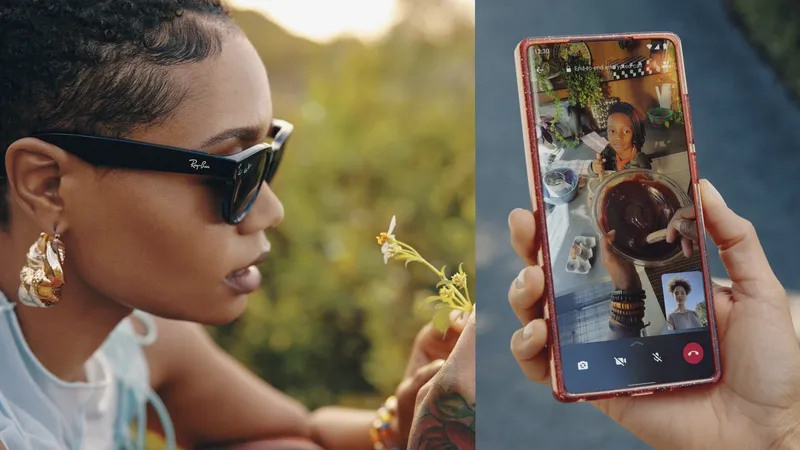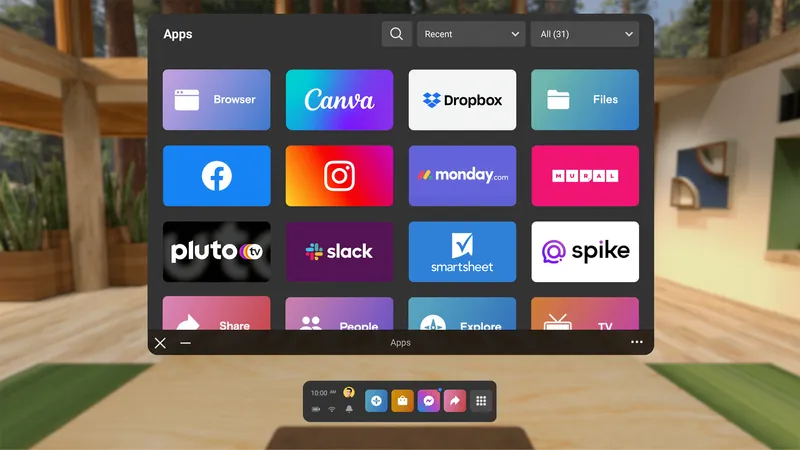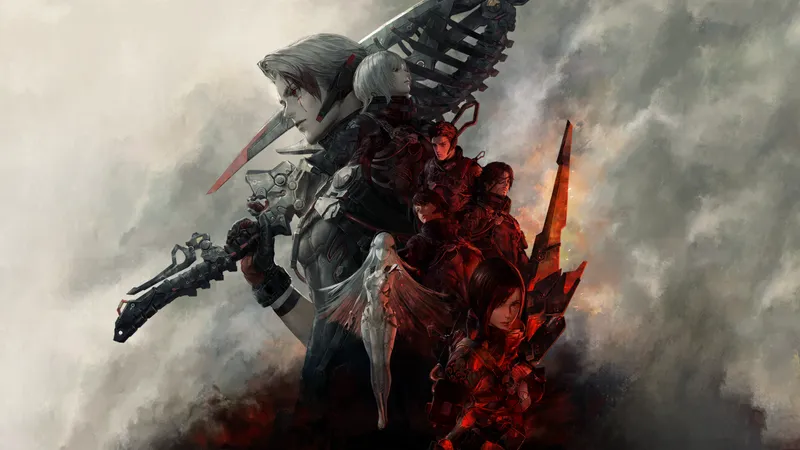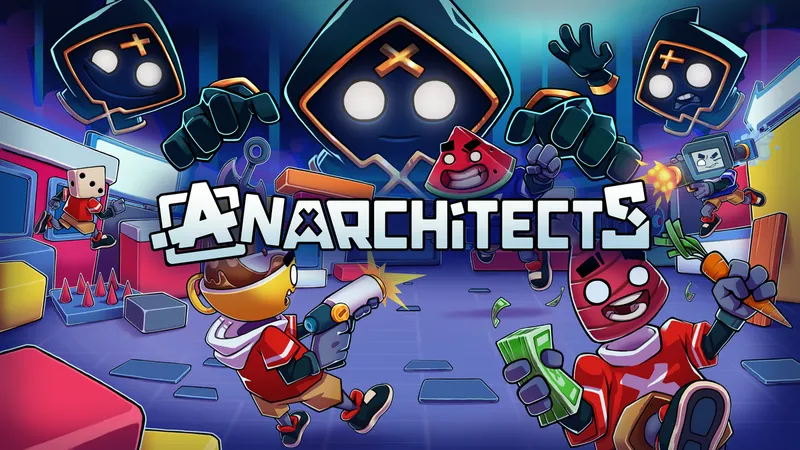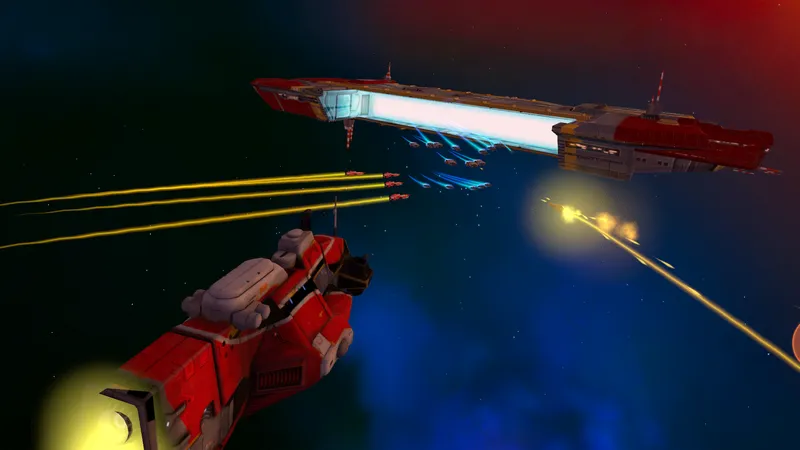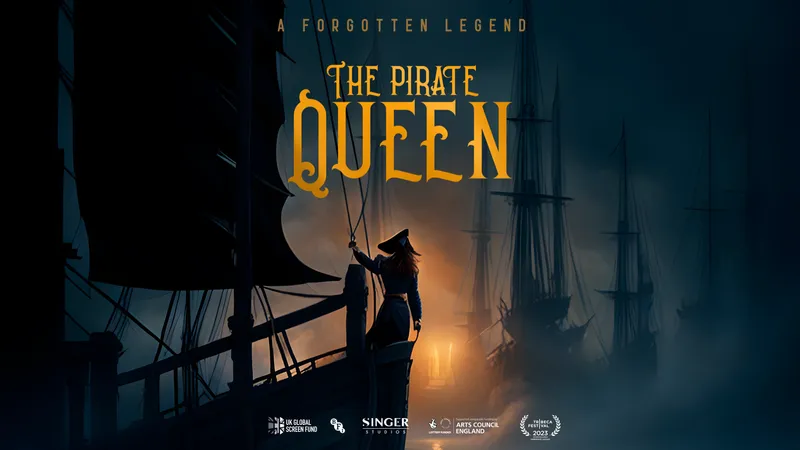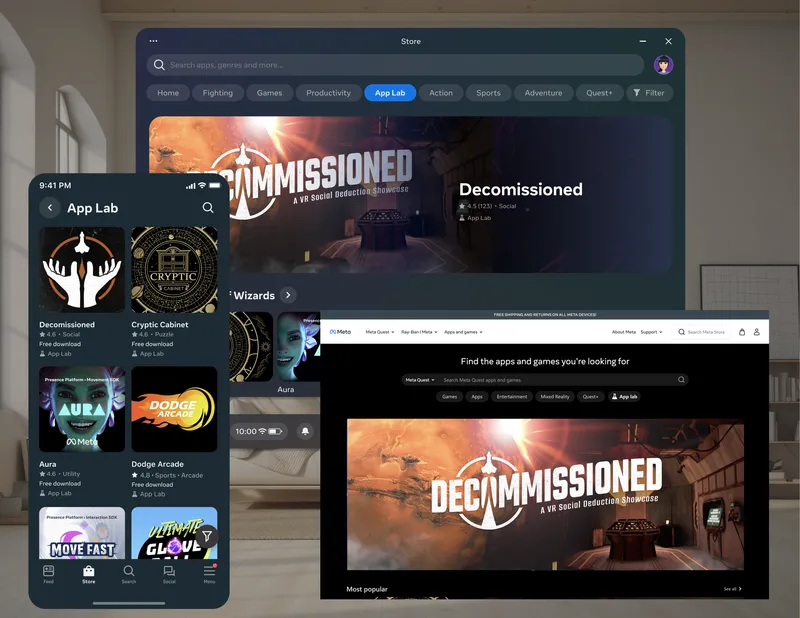Dan Tucker is apologizing again. We’re stepping over cables, ducking under scaffolding and trying to hear each other over the drone of drilling on the first day of Sheffield Doc/Fest. Things are running a little late and the Alternate Realities Arcade, a staple feature of the festival that highlights VR and AR’s work in the documentary field, isn’t quite up to where it’s meant to be. Tucker points to a hole in the wall leading into a dark exhibition space and explains that an inflatable mushroom crowd will fill the gap, promoting Gabo Arora and Saschka Unseld’s nuclear disarmament piece, The Day The World Changed. There’s a sense that something special is just a few hours away from being born (and, as this 3D scan shows, it was), though right now tensions are a little high.
But Tucker needn’t be so apologetic; it’s painfully clear that we’re on a late start simply because Doc/Fest is trying to make a VR exhibition unlike anything you’ve ever seen before. The actual work speaks to that.
Frankly, Alternate Realities did more to validify VR’s artistic potential this year than the entire gaming industry could muster in an enormous LA-based convention hall running concurrently. In a backroom of the Trafalgar Warehouse in which the arcade is situated, a handful of experiences shown to me on laptops and mobile headset easily drowns out the busy work in the background.
As always, Doc/Fest’s curated list of experiences is rarely an easy watch. This year’s arcade is made up of two floors that Tucker explains he pieced through in order to provide two different experiences. On the lower floor are installations that put you in the shoes of others, utilizing VR’s ability to help us take on new roles. In Porton Down, for example, I relieve the experiences of an ex-serviceman that was subjected to unconventional testing in the 50’s. I sit on a chair and complete reaction-based tests like pressing a button as quickly as possible while my vision becomes increasingly hazy. At the end of the experience, I’m shown that all of my data throughout has been tracked and that I myself have been a test subject. It was a sensation I will never forget.
Other experiences delve deeper into the tricky landscape of mental anguish with harrowing efficiency. In Aaron Bradbury and Paul Mowbray’s Vestige I’m given a first-hand account of dealing with grief after a young woman loses her soulmate. Painted into reality with vibrant threads, the piece has a warm glow to its nostalgic memories that’s quickly stripped away as Lisa describes the pain of watching the man she loves die. Reality itself begins to scramble and, for a brief few moments, you feel yourself lost in her suffering in a way you might not on the big screen.
Mind at War from VR artist Sutu has a similar effect. It tells the true story of Scott, who joins the military in the wake of 9/11 and only finds his decision to carry great personal cost. Brought to life via static Tilt Brush scenes, Mind at War is unflinching, making no apologies in how it brings the weight of Scott’s PTSD onto your shoulders before taking a deeper look at a crisis that sweeps the US. There’s an intensity to the immersion that has you drowning in its more visceral moments, with nothing but a dark void and a distressed voice to guide you through.
Certainly, it takes some mental fortitude to immerse yourself in these difficult topics. But in addressing these issues, these projects are breaking new ground in VR and digging into the heart of the medium. Whereas this year’s E3 confirmed games developers are still struggling to get a real grip on VR’s true power, it was evident in almost everything I saw in Sheffield.
I discover a personal highlight amongst the curated playlists of 360 videos that Tucker has prepared for the show. While Benoit Felici and Mathais Chelebourg’s The Real Thing proves to be perfect justification for the format with its bizarre tour of synthetic Chinese cities that copy some of the world’s most famous landmarks, it’s Grenfell: Our Home that strikes a real chord. Commissioned by the UK’s Channel 4 and created by Jonathan Rudd, it tells the story of a handful of residents of London’s Grenfell Tower which suffered a disastrous fire last year, tragically killing 71 residents.
Grenfell: Our Home is a virtual reality documentary about people’s lives, their homes and the community that existed in the Grenfell tower before the fire of 14th June 2017.
The full @Channel4 VR documentary will be available @Channel4News from
the 3rd of July. pic.twitter.com/CgI87VXoCn— Channel 4 News (@Channel4News) June 14, 2018
Our Home brings Grenfell back to virtual life in powerful ways. Residents first speak not of that tragic night but the lives they built for themselves inside the block of apartments. Their homes are rebuilt around the viewer as they talk; one couple describes their growing family of plants and we’re suddenly immersed in a deceptively dense indoor garden, while another resident talks about the last surviving picture of her child taking centerpiece in her home before it was destroyed. As the discussion inevitably shifts towards the fire, I had a greater idea of what had truly been lost than I ever had before.
But Alternate Realities isn’t just about these heavy themes; it also paints a bright picture of VR’s future as a tool for learning. Hold the World, a piece that stars legendary naturist, Sir David Attenborough, allows you to tour London’s Natural History Museum with 3D scans, capitalizing on that potential for VR education that we’ve only really heard talked about so far. The BBC’s Life in VR, meanwhile, provides a peaceful moment’s wonder as you explore the seabed of the Californian coast.
Later in the evening, I’m back down in the main hall, and things are finally taking shape for the week ahead. There’s a genuine sense of creativity in the air, and excitement for the week ahead. If there’s a running theme of VR fatigue in 2018, it’s nowhere to be found here, and I believe that’s because I’m standing around a group of creators doing the most important work in VR yet.
Brilliantly, Doc/Fest is going to make sure more people see this content this year, taking Alternate Realities on tour across the UK and beyond in the coming months. If you have the chance, I fully recommend getting to see it.

